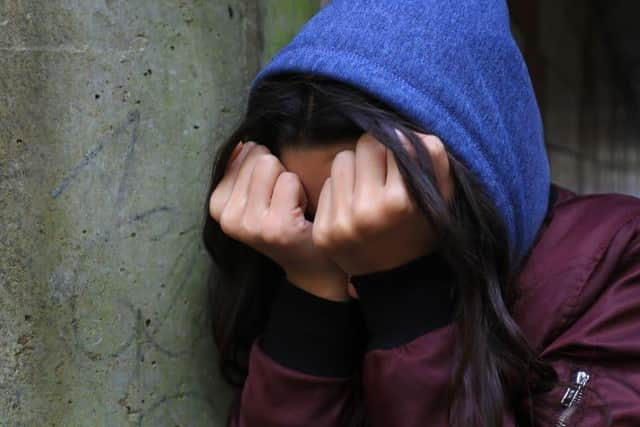More than 150 modern slavery victims identified in South Yorkshire – more than a third were children
and live on Freeview channel 276
Home Office data reveals a rise in modern slavery cases referred to South Yorkshire Police, with 151 recorded in 2020, four more than the 147 recorded in 2019.
They included 52 children – equating to around 34 per cent of all referrals.
Advertisement
Hide AdAdvertisement
Hide AdAnti-slavery charity Unseen has warned of a potential increase in victims following the coronavirus pandemic, adding that the UK's economic downturn has created more vulnerable people who could be at risk of exploitation.


Across the UK, 10,613 potential victims were referred to police last year – broadly in line with the record 10,616 identified in 2019.
Between January and March this year, almost 3,000 further potential victims were flagged, a slight increase on the same period in 2020.
Of those, 47 were identified to police in South Yorkshire.
Modern slavery can involve domestic servitude, forced labour, sexual or criminal exploitation.
Advertisement
Hide AdAdvertisement
Hide AdUnseen said the closure of recognised slavery hotspots – such as car washes and nail bars – during lockdown periods in the UK meant potential victims were less visible during the pandemic, when referrals linked to adults fell nationally.
But there was an increase across the UK in cases involving children, who are more likely to be exploited at the hands of drugs gangs.
Referrals linked to “county lines” activity, which sees gangs using vulnerable people to transport drugs from cities to small towns, rose by almost a third nationally in 2020, with male children identified as potential victims in four out of five of those cases.
A spokeswoman for the Human Trafficking Foundation called for a national strategy to tackle the exploitation of youngsters and said: "The rise in British cases involving children highlights how increasingly acute child criminal exploitation is now in this country and that not enough sadly is being done to tackle it."
Advertisement
Hide AdAdvertisement
Hide AdThose identified as possible victims by police forces, councils or other recognised authorities are referred to the Home Office for support via the National Referral Mechanism.
Until 2020, NRM referrals had increased every year since recording began in 2014.
The Home Office said restrictions amid the pandemic are likely to have caused a plateau in referral numbers.
Unseen's Justine Currel said: “Covid-19 and the subsequent economic downturn affected the visibility of the threat in such places as car washes and nail bars.
Advertisement
Hide AdAdvertisement
Hide Ad“And as you would expect, the proportion of calls from the general public declined during the lockdowns as fewer people were out and about.
“Now we’re emerging from lockdown, we’re seeing contacts significantly increasing.
“It’s too early to say how many of these contacts will result in victims of modern slavery being identified."
A Home Office spokesperson said the Government had intensified enforcement action to crack down on those exploiting young people and highlighted 1,000 arrests linked to county lines activity in May.
Advertisement
Hide AdAdvertisement
Hide AdThe spokesperson added: “Through the Modern Slavery Victim Care Contract, delivered through The Salvation Army, we provide adult victims in England and Wales with specialist support to help them to rebuild their lives, including safehouse accommodation, financial support and assistance in accessing health care and legal support.”
In these confusing and worrying times, local journalism is more vital than ever. Thanks to everyone who helps us ask the questions that matter by taking out a subscription or buying a paper. We stand together. Liam Hoden, editor.
Comment Guidelines
National World encourages reader discussion on our stories. User feedback, insights and back-and-forth exchanges add a rich layer of context to reporting. Please review our Community Guidelines before commenting.
